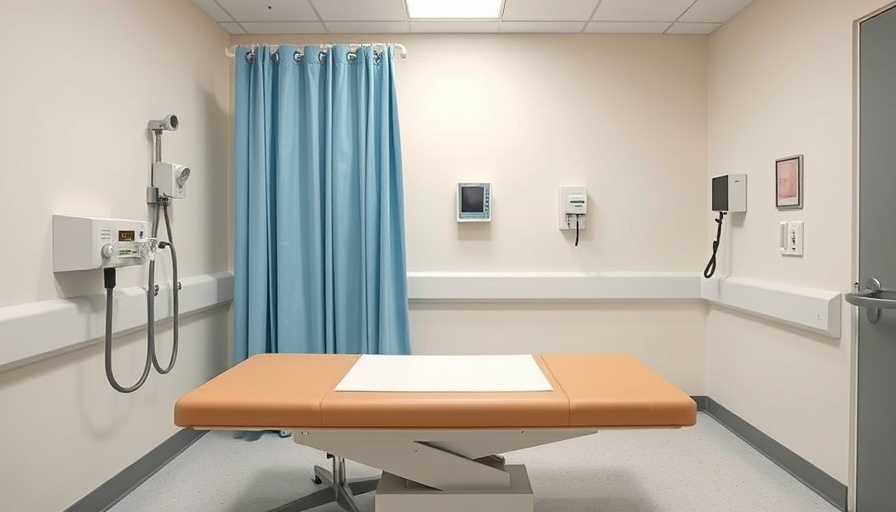
Trump's Tax Law: A Pivotal Shift for Health Care Funding
In a significant shift for America’s health care system, President Donald Trump's One Big Beautiful Bill Act is projected to have substantial negative effects on state economies and hospital operations, primarily due to sweeping cuts in Medicaid funding. According to a recent S&P Global report, these changes threaten to leave nearly 12 million Americans without health insurance, leading to long-term economic repercussions for states and health care facilities alike.
An Alarming Projection: Health Insurance Losses
The Congressional Budget Office estimates a staggering drop of nearly $219 billion in federal Medicaid funding to the states over the next decade. This reduction means that millions will lose their health care coverage, raising the stakes for both state governments and hospitals. States that did not expand their Medicaid programs under the Affordable Care Act will likely feel the brunt of these changes, with a freeze on current provider taxes adversely affecting revenue streams.
The Compounding Financial Strain on States and Hospitals
The financial pressures stemming from the new law are further compounded by reduced individual coverage, resulting in decreased revenues for health care providers. At the same time, the costs of charity care and bad debt are expected to rise. In a health care landscape that is already strained, this combination threatens to push many facilities to a breaking point, especially those reliant on Medicaid reimbursement.
Adjusting Medicaid: A Path Forward?
Despite the dire circumstances presented by the One Big Beautiful Bill Act, there remains an opportunity for states to mitigate negative impacts. States have the flexibility to modify their Medicaid programs and raise revenue, which can preserve critical funding and safeguard their credit ratings. The proactive adaptations could help in reducing some of the financial strain inflicted by the new federal law, but timely action will be key in this fast-evolving landscape.
A Broader Perspective: Health Care Funding and State Economics
Understanding the ripple effect of federal laws on local economics is crucial. When millions of Americans lose access to health coverage due to reduced Medicaid funding, it transcends health care; it influences job markets, local economies, and even public health. The reduction in services can lead to increased emergency room visits, placing an additional burden on hospitals that may not have the resources to handle the influx.
Counterarguments and Diverse Perspectives
While there are valid concerns regarding the impact of the One Big Beautiful Bill Act, opponents argue that the changes may create incentives for states to innovate their health care delivery systems. This perspective suggests that reformed Medicaid requirements could push states to explore more efficient health care models or alternative funding mechanisms, perhaps even sparking a necessary evolution in public health strategies.
Conclusion: The Urgency for Action
The implications of the changes brought by Trump's tax law are far-reaching, emphasizing the critical need for states and health care providers to act swiftly in response to structural funding shortages. The future of millions rests on the ability of state governments to adapt and innovate in the shifting health care landscape.
For those invested in the future of public health and state economies, understanding the nuances of these changes can empower proactive engagement. Explore options on how to stay informed and involved in discussions about Medicaid funding and local health care systems.
 Add Row
Add Row  Add
Add 



Write A Comment